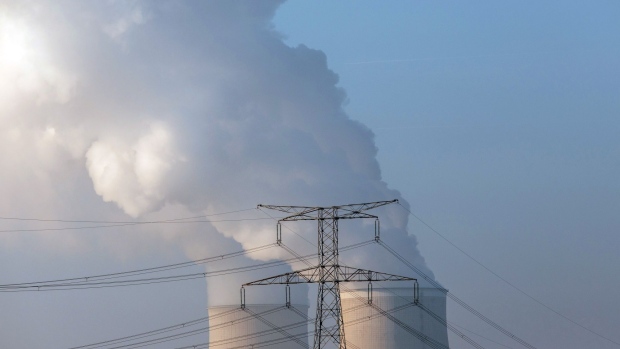Dec 30, 2022
France Faces Power Cuts in Case of a Cold Snap, Grid Says
, Bloomberg News

(Bloomberg) -- France risks falling short of electricity in a cold snap and lack of wind next month as an abnormally high number of the country’s nuclear reactors are halted for maintenance, the country’s grid operator said.
The stark warning is a reminder that Europe’s energy crunch shows little sign of letting up after easing this week amid the end-of-the-year holidays. Soaring gas and power prices already forced some manufacturers across the continent to curb output, while governments responded to the crisis with tax cuts and subsidies, mostly for consumers.
In its updated assessment for January, Reseau de Transport d’Electricite said it will probably need to activate contracts that allow it to briefly cut electricity to some large manufacturers or even to reduce the voltage on the grid in case of a cold snap or low wind generation. As a last resort, rolling power cuts of as much as two hours may be used, RTE said.
“Based on the latest forecast for January, such meteorological events -- including a severe cold snap -- seem very unlikely for the start of the month, and less likely for the rest of the month,” RTE said. “Hence, the risk of power cuts is essentially ruled out at least for the start of January.”
More than a quarter of Electricite de France SA’s 56 atomic reactors are currently halted because the coronavirus pandemic has disrupted the utility’s maintenance program.
While EDF’s total nuclear production capacity in France totals 61 gigawatts, only between 43 and 51 gigawatts will be available for most of January, a record low for this time of the year, RTE said.
While ensuring citizens can keep the lights on is always a politically sensitive issue, any blackout would be a blow for President Emmanuel Macron ahead of April’s presidential elections. His government closed France’s two oldest reactors last year, and is shutting most of the country’s remaining coal-fired power stations to reduce carbon emissions.
Earlier this year, France’s grid operator called for “vigilance” on power supplies, especially during January and February, because of a slower than expected ramp up of renewables and repeated delays in the construction of a new atomic plant, leaving the country with tight power supply margins during winter.
©2021 Bloomberg L.P.


